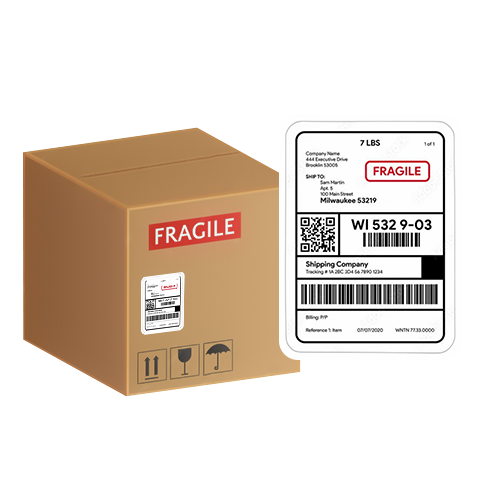
Unleashing the Power of Amazon Automation: A Guide to Streamlining Your E-Commerce Business with virtual assistants

The benefits of using virtual assistants for your e-commerce business
In today’s fast-paced e-commerce landscape, finding ways to streamline your business operations is crucial for success. And one strategy that is gaining popularity is leveraging the power of Amazon automation through virtual assistants. By harnessing the capabilities of virtual assistants, online sellers can free up time, increase efficiency, and ultimately scale their businesses to new heights.
From managing inventory and fulfilling orders to handling customer inquiries and optimizing product listings, PPC ad creation, campaigns optimization, product research, sourcing, product listings virtual assistants can take care of the day-to-day tasks that often consume valuable time and energy. This allows business owners to focus on strategic decision-making and expanding their reach.
But how exactly can you unleash the power of Amazon automation? In this comprehensive guide, we will explore the benefits of virtual assistants and provide actionable tips on how to effectively integrate them into your e-commerce operations. Whether you’re a small business owner looking to make the most of your resources or a seasoned seller aiming to stay ahead of the competition, this guide will equip you with the knowledge you need to streamline your business with virtual assistants and achieve sustainable growth in the ever-evolving world of online retail.
Table of Contents
Add a header to begin generating the table of contents
How Amazon automation works
Virtual assistants offer numerous benefits for e-commerce businesses. Firstly, they allow you to delegate time-consuming tasks, such as inventory management and order fulfillment, so you can focus on strategic aspects of your business. With a virtual assistant handling these operational tasks, you can dedicate your time to expanding your product line, optimizing marketing strategies, and exploring new growth opportunities.
Secondly, virtual assistants can help you scale your business more efficiently. As your business grows, the workload increases, and it becomes challenging to manage everything on your own. By leveraging virtual assistants, you can easily handle increased order volumes, manage customer inquiries, and ensure smooth operations without the need for extensive hiring or costly infrastructure investments.
Lastly, virtual assistants bring expertise and specialized skills to the table. Whether it’s optimizing product listings, conducting market research, or managing PPC campaigns, virtual assistants can offer valuable insights and implement best practices to enhance your online presence and drive sales.
Finding and hiring virtual assistants for Amazon automation
Amazon automation involves using virtual assistants to streamline various aspects of your e-commerce business on the Amazon platform. Virtual assistants can be trained to handle tasks such as inventory management, order fulfillment, customer service, product research, and optimization. They can also assist with PPC ad creation, campaign optimization, and other marketing activities.
To implement Amazon automation, you’ll need to leverage tools and software that integrate with Amazon’s API and provide automation capabilities. These tools allow you to automate repetitive tasks, set up rules and triggers, and gather valuable data to optimize your business processes.
By automating these tasks, you can save time, reduce errors, and ensure a seamless customer experience. With the right automation strategy in place, you can focus on strategic decision-making and growing your business while your virtual assistants handle the day-to-day operational tasks on your behalf.
Training and managing virtual assistants for optimal performance

When it comes to finding and hiring virtual assistants for Amazon automation, there are several options available. You can choose to hire freelancers from online platforms such as Upwork, Freelancer, or Fiverr. These platforms allow you to browse through profiles, review ratings and reviews, and hire virtual assistants based on their expertise and experience.
Another option is to partner with an agency that specializes in providing virtual assistants for e-commerce businesses. These agencies typically have pre-vetted virtual assistants with experience in Amazon automation and can help match you with the right candidate based on your specific requirements.
When hiring virtual assistants, it’s essential to define clear job descriptions and expectations to ensure a smooth working relationship. Clearly communicate the tasks and responsibilities they will be handling, the desired qualifications and skills, and any specific software or tools they need to be familiar with. Conduct thorough interviews and consider asking for work samples or conducting skill assessments to assess their capabilities.
Once you’ve found the right virtual assistants, establish clear communication channels, set expectations, and provide ongoing training and feedback to ensure they understand your business goals and can perform their tasks effectively.
Automating product research and sourcing with virtual assistants
Training and managing virtual assistants is crucial for their optimal performance. Provide comprehensive training on your e-commerce platform, tools, and processes to familiarize them with your business operations. Clearly communicate your expectations, standard operating procedures, and performance metrics to ensure they understand what is expected of them.
Regularly communicate with your virtual assistants to provide feedback, address any concerns, and make adjustments as needed. Encourage open and transparent communication to build a strong working relationship. Set up regular check-ins, either through video calls or messaging platforms, to stay updated on their progress and provide guidance.
Additionally, leverage project management tools and collaboration platforms to streamline communication and task management. Tools like Asana, Trello, or Slack can help you assign tasks, track progress, and ensure accountability.
Remember, effective training and management are key to maximizing the potential of your virtual assistants and ensuring they contribute to the growth and success of your e-commerce business.
Streamlining inventory management and order fulfillment with virtual assistants
One of the key tasks that virtual assistants can handle is product research and sourcing. They can help you identify profitable product opportunities, conduct market research, analyze competition, and find reliable suppliers.
To automate product research and sourcing, provide clear guidelines and criteria for the types of products you’re interested in. This can include factors such as profit margins, demand trends, competition levels, and niche opportunities. Virtual assistants can then use these guidelines to conduct thorough research and present you with potential product ideas.
Leveraging tools like Jungle Scout, Helium 10, or AMZScout can also streamline the product research process. These tools provide valuable data and insights on product performance, sales estimates, and competition analysis, helping you make data-driven decisions.
By automating product research and sourcing, you can save time and effort while ensuring you’re investing in profitable product opportunities that align with your business goals.
Optimizing product listings and SEO with virtual assistants
Inventory management and order fulfillment are critical aspects of running a successful e-commerce business. Virtual assistants can take care of these tasks, ensuring efficient inventory management and timely order fulfillment.
To streamline inventory management, virtual assistants can monitor stock levels, set up automated reorder points, and handle inventory forecasting. They can also help with supplier communication, ensuring timely replenishment and preventing stockouts.
For order fulfillment, virtual assistants can manage order processing, track shipments, and handle returns and exchanges. They can also coordinate with fulfillment centers or third-party logistics providers to ensure smooth operations.
By automating inventory management and order fulfillment, you can minimize stockouts, reduce shipping delays, and provide a seamless customer experience. This not only improves customer satisfaction but also frees up your time to focus on other critical aspects of your business.
Leveraging virtual assistants for customer service and feedback management
Product listings play a crucial role in attracting customers and driving sales on Amazon. Virtual assistants can assist in optimizing product listings, ensuring they are keyword-rich, persuasive, and well-structured.
Virtual assistants can conduct keyword research and identify relevant search terms that can improve your product’s visibility. They can then incorporate these keywords into your product titles, bullet points, and product descriptions to improve search rankings and attract organic traffic.
Additionally, virtual assistants can optimize product images, ensuring they are high-quality, visually appealing, and accurately represent your products. They can also help with A+ content creation, enhancing the overall visual appeal and providing additional product information to potential customers.
Don’t forget the importance of SEO in driving traffic to your product listings. Virtual assistants can optimize your Amazon store’s SEO by improving backend keywords, optimizing category and subcategory names, and ensuring proper use of metadata.
By leveraging the expertise of virtual assistants, you can enhance your product listings, improve search rankings, and increase your chances of attracting and converting potential customers.
Scaling your e-commerce business with Amazon automation and virtual assistants

Providing excellent customer service is crucial for maintaining a positive brand image and driving customer loyalty. Virtual assistants can handle customer inquiries, provide timely responses, and address any concerns or issues raised by customers.
Virtual assistants can also manage feedback and reviews, ensuring prompt responses to both positive and negative feedback. They can help resolve customer complaints, address product-related issues, and provide appropriate solutions to ensure customer satisfaction.
To streamline customer service, provide virtual assistants with comprehensive training on your brand values, customer service standards, and common customer inquiries. Equip them with pre-drafted responses and templates to ensure consistent messaging and efficient communication.
By leveraging virtual assistants for customer service and feedback management, you can provide excellent support to your customers, build trust, and foster long-term relationships.
Facebook
Twitter
LinkedIn
Tumblr
WhatsApp
Reddit
Pinterest

Hamza Khalid
E-commerce Expert
As a proven e-commerce specialist, my influence is recognized in the success of multiple e-commerce businesses worldwide. My strategic thinking and hands-on approach have led to significant business growth. My comprehensive skill set encompasses strategy development, issue resolution, and developing & managing teams.
Linkedin
Facebook
Twitter
Check Our Latest Blogs

How to Promote Your Amazon Listing and Increase the Reach of Your Store
December 22, 2023
How to Promote Your Amazon Listing and Increase the Reach of Your Store…
Read More

Everything you need to know about Amazon Labeling & packaging Instructions
December 14, 2023
Everything you need to know about Amazon Labeling & packaging Instructions You have…
Read More

How to set up your Amazon Product Listing
December 11, 2023
How to set up your Amazon Product Listing Now that you have everything…
Read More

Navigating the World of Design Services on Fiverr
November 30, 2023
Navigating the World of Design Services on Fiverr How Does Fiverr Work: Fiverr,…
Read More

Generative AI at Amazon: Empowering Businesses with creativity and efficiency
November 29, 2023
Generative AI at Amazon: Empowering Businesses with creativity and efficiency Revolutionize Your Advertising…
Read More

The Benefits and Drawbacks of Local Sourcing
November 7, 2023
The Benefits and Drawbacks of Local Sourcing Local Sourcing Has Several Benefits: ⦿…
Read More





